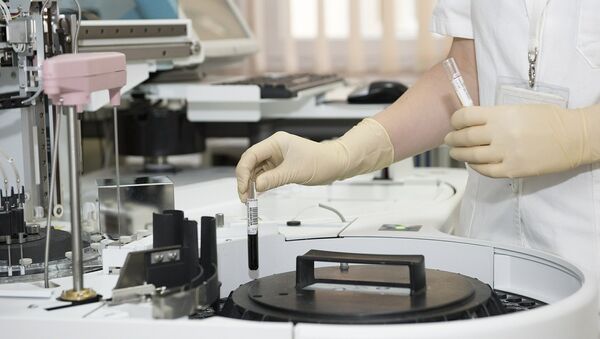Radio Sputnik discussed the issue with Dr. Jian Ping Gong, Distinguished Professor of the laboratory of Soft & Wet Matter at Hokkaido University, who leads the team.
According to Ping Gong, the main feature of the material is that it is "extraordinary tough," but also very flexible.
"This material may be used in our body as an artificial tendon or ligament," the expert told Radio Sputnik. "We are trying to collaborate with medical doctors to use this kind of material for ligament or for tendon. And our next challenge will be how to fix this material to our bones," she added.
The research team spent three years to produce the new gel. According to Ping Gong, "it was difficult to combine two materials that have completely different properties."
As for practical application, the team says their discovery can be used to develop biomaterials, such as artificial organs and prostheses, and thus change the way our bodies recover and age.
"We get the funding from governmental organizations, but our application, at the moment, is focused on biological and biomedical spheres," Ping Gong said.
The expert also noted that the material could be used in other areas as well.
"This kind of composite material gives us an idea to develop other very tough materials. So we would like to expand and use this kind of design to develop other materials," the expert said.
According to Ping Gong, their discovery could be potentially used in automotive and military industries, although the research team opposes the latter and "prefers more peaceful applications."



